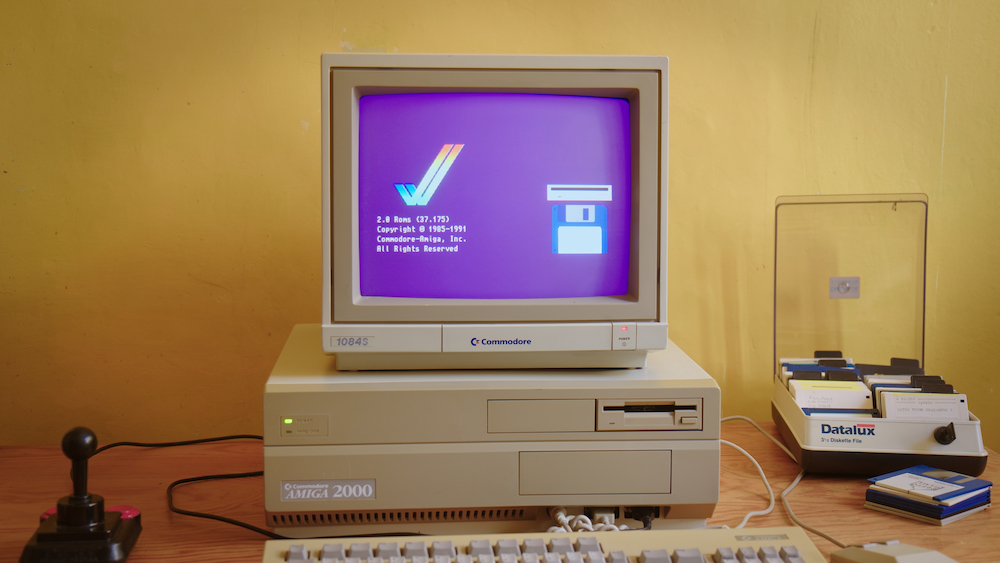Is a Retro Computer Expo the Key to Unlocking Nostalgia?

# The Evolution of Computers: From Room-Sized Giants to Quantum Machines
Over the past six decades, computers have undergone a remarkable transformation, evolving from massive machines that occupied entire rooms to highly sophisticated quantum computers capable of performing calculations that were once considered impossible. This journey through the history of computing reveals not just advancements in technology but also a profound shift in how we interact with the digital world. In this article, we will explore the pivotal moments in computing history, the technological advancements that have shaped modern computing, and the potential future of quantum technology.
## The Birth of Computing: The Early Years
### The Mechanical Era
The history of computers can be traced back to mechanical devices like the abacus and the analytical engine conceived by Charles Babbage in the 19th century. These early inventions laid the groundwork for later developments in computing.
### The Electronic Revolution
The true revolution began in the 1940s with the advent of electronic computers. ENIAC (Electronic Numerical Integrator and Computer), created in 1945, was one of the first general-purpose electronic computers. It filled an entire room and utilized vacuum tubes for processing, making it bulky and power-hungry.
### Transistors and Miniaturization
The introduction of transistors in the 1950s marked a significant milestone. These smaller, more efficient components replaced vacuum tubes, leading to increased reliability and reduced size. This period saw the birth of the first computers that could fit on a desk rather than an entire room.
### The Microprocessor Revolution
The 1970s heralded the microprocessor era with the introduction of the Intel 4004, the first commercially available microprocessor. This innovation paved the way for personal computers (PCs), revolutionizing access to computing power. Suddenly, individuals and small businesses could harness the power of computers.
## The Emergence of Personal Computers
### The Rise of Home Computing
The late 1970s and early 1980s saw the emergence of home computers like the Apple II and the IBM PC. These machines democratized computing, allowing everyday people to use technology for productivity, education, and entertainment.
### The Graphical User Interface
A significant leap forward came with the development of the graphical user interface (GUI). Originally popularized by the Apple Macintosh in 1984, GUIs made computers more user-friendly and accessible, transforming the way people interacted with technology.
## The Internet Age: Connecting the World
### The Birth of the Internet
The 1990s witnessed the rise of the internet, fundamentally altering how computers were used and perceived. The World Wide Web opened up a new realm of possibilities, allowing users to connect, communicate, and share information globally.
### Mobile Computing
As technology advanced, laptops became commonplace, followed by the advent of smartphones. These mobile devices further changed the landscape of computing, enabling users to access information and services on the go.
## Cloud Computing: A Paradigm Shift
### The Emergence of Cloud Services
The 2000s introduced cloud computing, which allowed users to store and access data over the internet rather than on local devices. This shift has transformed how businesses operate, enabling remote work and collaboration like never before.
### Enhanced Data Processing
Cloud computing has also facilitated immense data processing capabilities, enabling organizations to analyze vast amounts of information quickly. This capability has given rise to big data analytics, machine learning, and artificial intelligence (AI).
## The Dawn of Quantum Computing
### What is Quantum Computing?
Quantum computing represents the next frontier in computing technology. Unlike classical computers that use bits (0s and 1s), quantum computers use qubits, which can exist in multiple states simultaneously. This allows quantum computers to perform complex calculations at unprecedented speeds.
### Potential Applications of Quantum Computing
The applications of quantum computing are vast and varied, including:
- **Cryptography:** Enhanced security protocols that could make current encryption methods obsolete.
- **Drug Discovery:** Accelerated simulations for developing new pharmaceuticals.
- **Optimization Problems:** Solving complex logistical challenges in real time.
- **Artificial Intelligence:** Enhancing machine learning algorithms for better performance.
### Current State of Quantum Computing
As of 2023, companies like IBM, Google, and startups are racing to develop functional quantum computers. While significant progress has been made, practical applications are still in the experimental stage.
## Challenges Ahead: The Road to Quantum Supremacy
### Technical Hurdles
Despite its potential, quantum computing faces several challenges:
- **Error Rates:** Qubits are extremely sensitive to environmental factors, leading to high error rates in calculations.
- **Scalability:** Building and maintaining a large number of stable qubits is a significant technical challenge.
- **Resource Requirements:** Quantum computers require specialized conditions, including extremely low temperatures to function.
### Ethical Considerations
The power of quantum computing raises important ethical questions, particularly in areas like data security and privacy. As quantum technology advances, discussions around responsible use and regulation will become increasingly critical.
## The Future of Computing: What Lies Ahead?
### Integration of AI and Quantum Technologies
As quantum computing matures, its integration with AI could lead to breakthroughs in various fields, from healthcare to finance. The synergy between these technologies promises to unlock new possibilities.
### The Role of Quantum Supremacy
Achieving quantum supremacy—where quantum computers can outperform classical computers on specific tasks—will mark a significant milestone. This could revolutionize industries and reshape our understanding of computation.
## Conclusion: Embracing the Future of Technology
The evolution of computers from hulking behemoths to nimble quantum machines illustrates humanity's relentless pursuit of innovation. As we stand on the brink of a new era in computing, it is essential to embrace these advancements while considering their implications for society.
Will quantum technology revolutionize our world, or will its challenges hinder its progress? Only time will tell. As we embark on this journey, it’s crucial to stay informed and engaged with the rapidly changing landscape of technology.
## Frequently Asked Questions
### What is a quantum computer?
Quantum computers are advanced computing devices that use the principles of quantum mechanics to perform calculations much faster than classical computers. They utilize qubits, which can represent multiple states simultaneously.
### How does quantum computing differ from classical computing?
Classical computers use bits as the smallest unit of data, which can be either 0 or 1. In contrast, quantum computers use qubits, which can exist in multiple states at once, allowing for parallel processing and increased computational power.
### What are the potential applications of quantum computing?
Quantum computing has potential applications in various fields, including cryptography, drug discovery, optimization problems, and artificial intelligence, among others. Its ability to solve complex problems at unprecedented speeds could transform multiple industries.
### What are the challenges facing quantum computing?
The main challenges facing quantum computing include high error rates due to qubit sensitivity, scalability issues in building stable qubit systems, and resource requirements for maintaining optimal operating conditions.
### Will quantum computing replace classical computing?
While quantum computing offers immense potential, it is not expected to completely replace classical computing. Instead, it will complement classical systems by solving specific problems that are currently intractable for traditional computers.
In conclusion, the evolution of computers has been nothing short of extraordinary. As we look to the future, it is essential to consider how these advancements will impact our lives and the world around us. What are your thoughts on the role of quantum computing in shaping the future?
#QuantumComputing #TechEvolution #FutureOfTechnology
Published: 2025-07-16 00:41:30 | Category: Uncategorized



